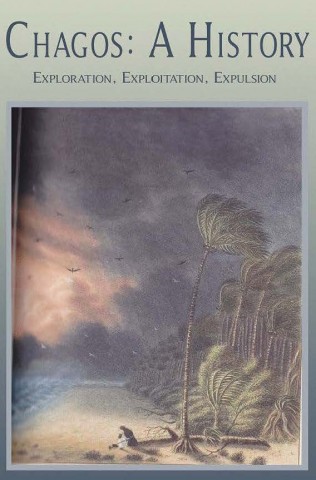Recent reviews of Chagos: A History
 CCT published Chagos: A History, by Nigel Wenban-Smith and Marina Carter, as part of its remit to spread accurate historical and scientific information last year. Two reviews of it have appeared so far, and the following extracts summarise them.
CCT published Chagos: A History, by Nigel Wenban-Smith and Marina Carter, as part of its remit to spread accurate historical and scientific information last year. Two reviews of it have appeared so far, and the following extracts summarise them.
“Few have sought to dig beneath their preconceptions to document the social history of these remarkable islands. Wenban-Smith and Carter’s book does just this, and this tome may well become the definitive social history of the islands, at least up until the 1970s.” Dr David Brewster, National Security College, Australian National University, writing in the journal Contemporary South Asia, 25:2, 224-225, DOI: 10.1080/09584935.2017.1332319.
He points out a main conclusion: “Mismanagement of Chagos’ coconut plantations for a century or more, followed by two world wars, contributed to its long economic decline.” Brewster comments briefly on the tough life that was had by the workers, who were largely left alone, even neglected, and then on how the transfer to the present military facility took place.
He comments that this is a “…comprehensive piece of scholarship on the social history of these remarkable islands …”
He ends his very complimentary review by suggesting that a new work might “…also include Mauritians, for whom the Chagos islands have come to represent a sort of national foundational myth, in which Mauritius was duped of its national birth right…but also partly a hope to gain the believed treasures of the Chagos’ exclusive maritime zone.”
The second review similarly states: “This is an essential read for everyone who calls themselves Chagossian (or Ilois) and their collaborators in the fight for them to return home. It provides the definitive history of human discovery and habitation of the Chagos Archipelago up to the point of de facto possession by the USA’s military. It has been meticulously researched and, although academically rigorous, it is a compelling read because its vivid narrative transports us back in time to a land far removed from our experience of modern day civilisation.” Dr Richard Munisamy.
He notes that “…life could be delightfully simple or simply desperate, but always remained incredibly rudimentary…. It is unsurprising that some voluntarily left the islands to be replaced by contract workers from Mauritius and later the Seychelles.”
Both reviews praise the rigour and accuracy of this history.

